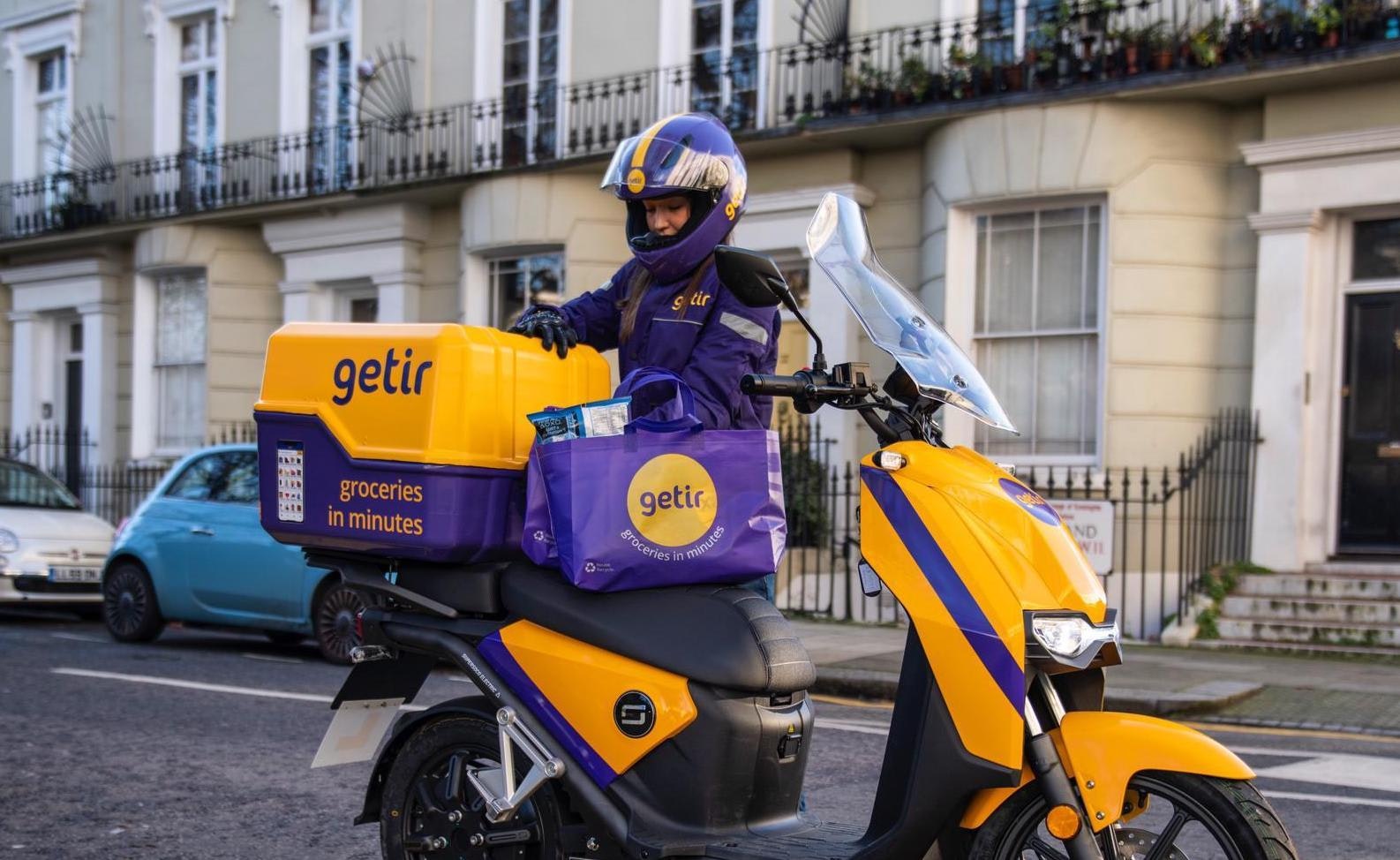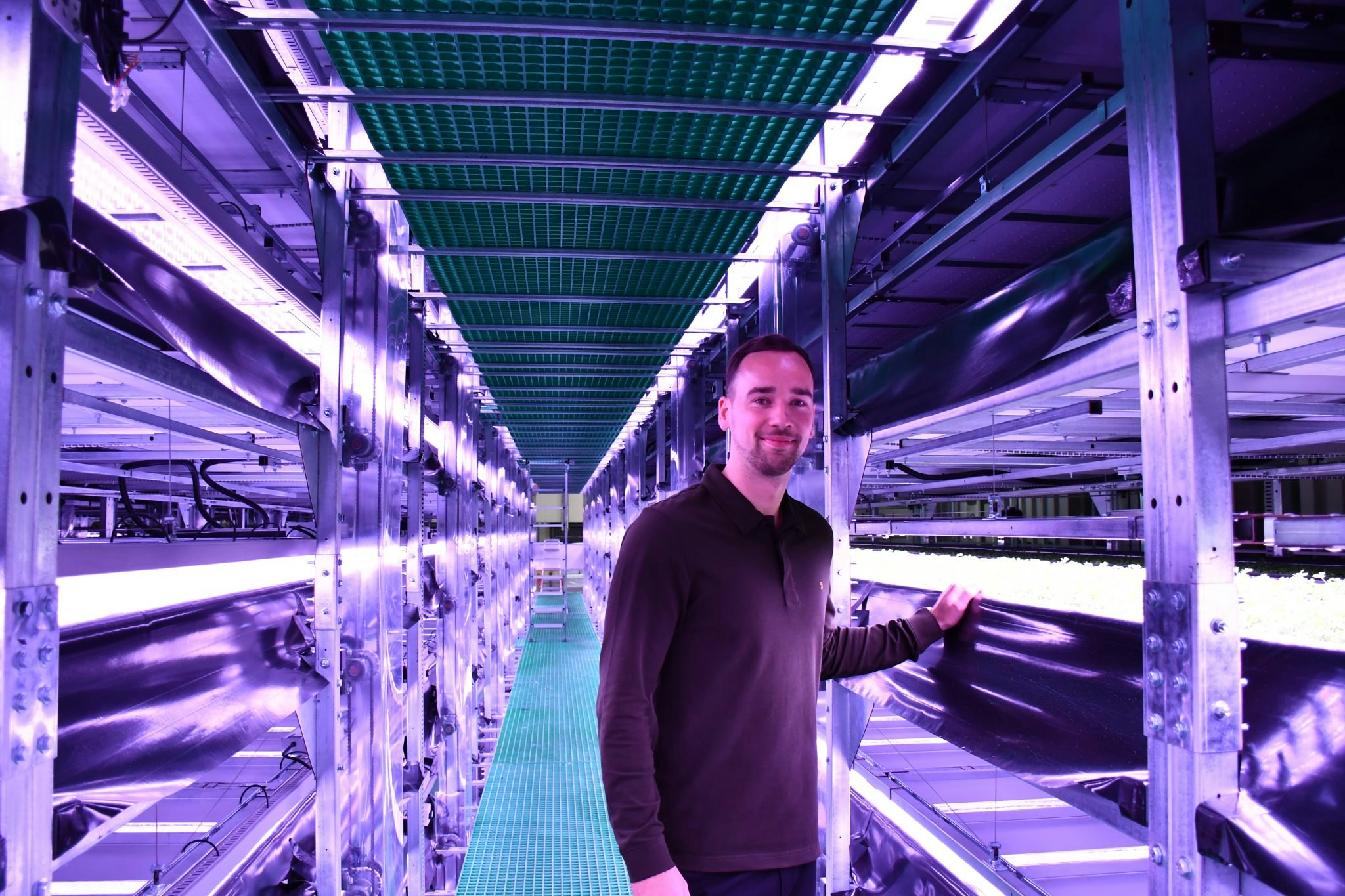Europe hasn’t been a tech hub for very long. Until recently, many people thought the continent just couldn’t do tech — so it’s rare to find someone who’s seen Europe’s startup scene evolve from the very beginning.
There’s few people with a better view of how exactly it unfurled — especially in Germany — than Doreen Huber, who’s had a seat at both sides of the table as an entrepreneur and investor. A born-and-bred Berliner who now lives in Majorca, Huber has been through wild scaling days, sold a company or two and put money into plenty more — and as someone who knows the German tech scene like the back of her hand, I thought she might have some ideas about where it’s headed.
Huber was part of the founding team and the chief operating officer of Delivery Hero — one of Germany’s first tech successes and now a listed company. She later founded Lemoncat, an online catering company that was eventually acquired by EatFirst, Rocket Internet’s B2B food group. And since September 2021 she’s been a partner at Swedish VC firm EQT Ventures.
When Huber arrives at the cosy Mediterranean restaurant she picked out — I'm trusting her recommendations fully given she once owned a foodtech company — it’s not long before I ask her: so, how did you get into tech, and why?
Settling into her seat and flicking her hair from her eyes, she says: “That’s a big question. How much time do you have?”
The gateway into tech
Huber strikes me as someone who doesn’t necessarily like the limelight, but is quietly ambitious and extremely hardworking.
At the age of 19, Huber got her first job in sales for an American company, Verisign, that provided internet encryption services — “pretty deep tech stuff” that Huber admits she didn’t understand when she joined. “But the cool thing about those US companies is that whoever is best for the job, gets the job,” she says. “They didn’t care that I was young and didn’t have a college degree.”
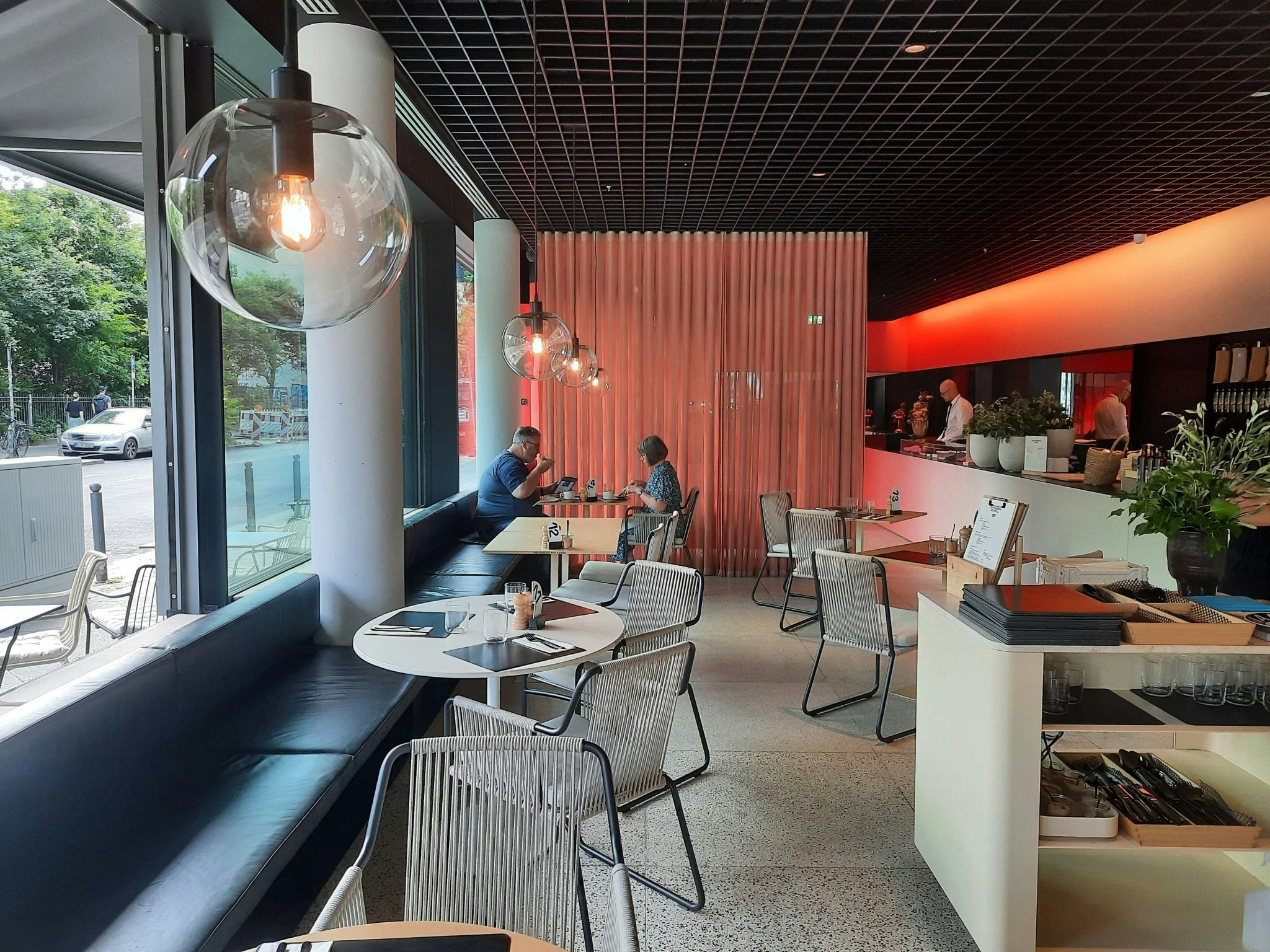
By her early twenties, Huber had worked her way up in Verisign and become responsible for its sales operations in Germany, Switzerland and Austria. She was in charge of a small team, and was starting to hire more people — so it seemed to her that now was the perfect time to go to university.
“I didn’t want to give up working and earning so much money, so I did both in parallel,” she explains. “I would make sure that I went to university lectures in the morning, work at Verisign throughout the day, and then pick up on my studies in the evening.”
She also founded her own company, an agency for marketing and telesales, while studying. She bootstrapped it, scaled it to 100 people and then later merged it with Ekomi, an online provider of transaction-based reviews and ratings, where she became chief sales officer.
But like many other founders, Huber didn’t actually plan on founding a tech company.
“I was 23, living in a one-bedroom apartment in Berlin and I just thought ‘what could go wrong?'," she says. That’s why now, as an investor, she always tells people to start a business as early as possible while they don’t have responsibilities and a high standard of living to maintain. “Now is the time to experiment,” she adds.
The early days of Berlin tech
Berlin’s tech scene today is booming. Last year, $7.1bn was invested into the city, making it the second best European tech hub in terms of capital. But in the late 90s and early 00s, the city was a desert.
“After the (Berlin) wall came down, Berlin was a party town. There was no industry,” explains Huber.
Berlin was really the island for the young and wild
“You had the big automotive companies in the south like BMW. All the agencies and creative people were in Hamburg. But in Berlin there was nothing. It had the highest unemployment rate in Germany. People were partying and escaping military service. It was really the island for the young and wild.”
At the turn of the millennium, founders started popping up that had great ideas — but there were few investors around to fund them.
“There was no capital because there was no proof for VCs that any good tech companies could come out of Berlin, or Germany,” she says. “You had a handful of German investors, but I would bet that no international VC had an office in Berlin at that point.”
The German capital started to earn its place on the global startup map, Huber thinks, when the first generation of tech companies were launched by Rocket Internet — a startup factory founded in 2008, which basically sought out founders with good ideas and launched the business for them in exchange for a little equity. Its successes include online fashion retailer Zalando, founded in 2008, and meal delivery company HelloFresh, founded in 2011.
“You have to thank the Samwers for putting Berlin on the international stage,” even though their methods were not always approved of, says Huber, referring to the trio of brothers who created Rocket Internet.
Rocket Internet became known globally for cloning existing companies and then putting them in competition with the original, says Huber. For instance it created an Airbnb clone called Wimdu in 2011 — three years after Airbnb was founded — and raised $90m for it in the first year. The company folded in 2018.
As a result, German tech became associated with creating copycat companies and stealing great ideas, explains Huber — a reputation that took a while to shake off.
It’s a much different story now. Huber says there are many novel ideas emerging from Berlin — especially in the food and climate tech space, which she spends a lot of time researching and learning about as an investor.
The Delivery Hero days
We are probably halfway through our allotted time for brunch when we realise that we haven’t ordered any food.
Beckoning to the waiter, Huber decides to order the egg cocotte — which we both learn is an egg baked in a ceramic dish — with spinach and white cheese, and strictly no bread (she gave up sugar and wheat a while ago but treats herself occasionally to dessert). While I go for a hefty bowl of carbs: yoghurt, fruit and homemade granola.
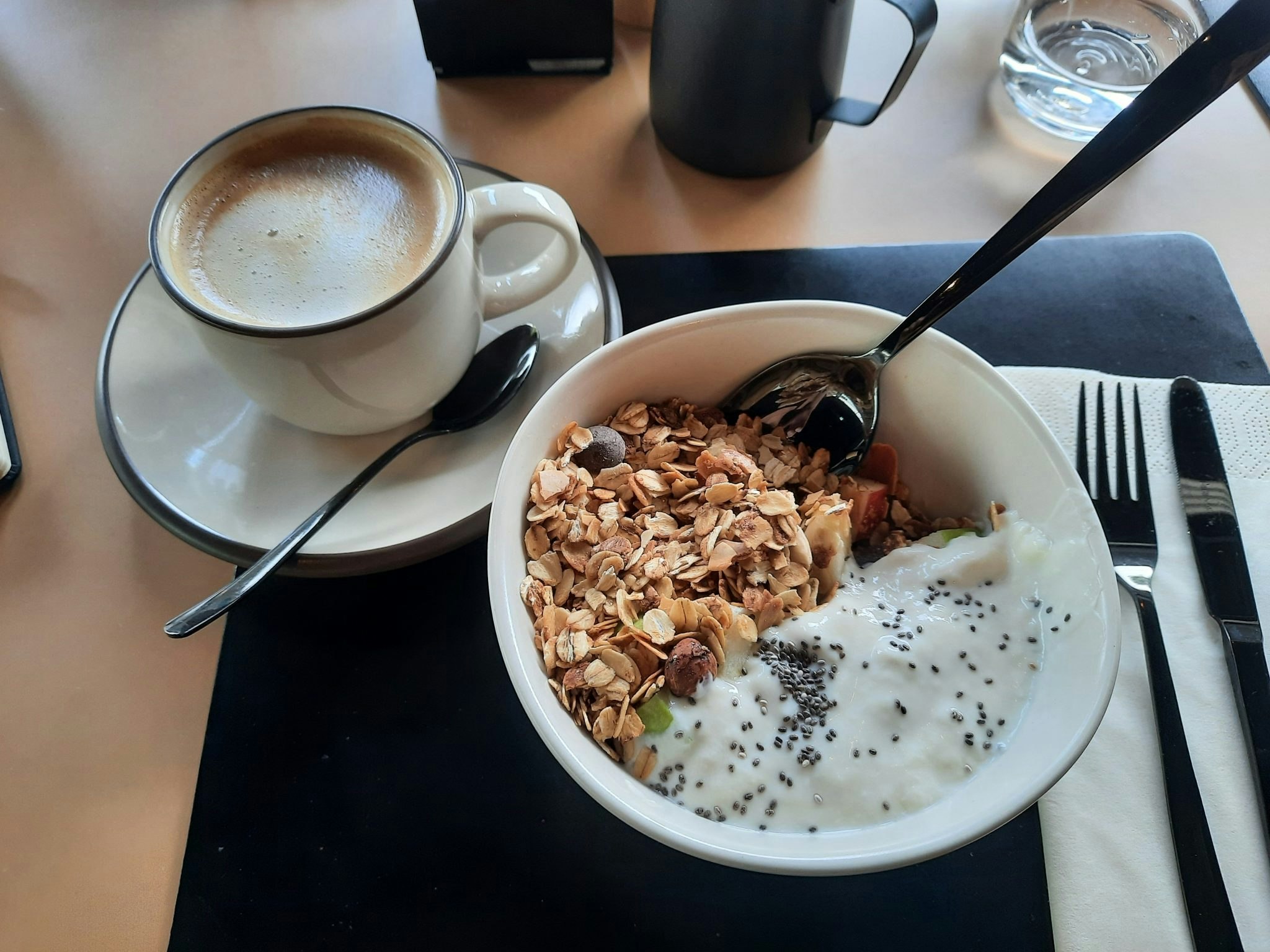
Huber says she’s a real foodie and, she thinks, a pretty good host. It’s a theme that’s translated into her professional life as well, both at Delivery Hero and at B2B catering marketplace Lemoncat. At the time, the catering industry was still largely analogue. In addition to the marketplace, Huber built a SaaS solution, Caterdesk, to help caterers manage their businesses digitally.
Menus tidied away, we sink our teeth into the next chunky topic: Huber’s early career at Delivery Hero. She joined the company shortly after it was founded in 2011 as chief sales officer — shortly after selling her first company, the marketing and telesales agency — and within a year, became chief operations officer.
When she met the Delivery Hero team for the first time, she says, it was “love at first sight”. And despite being the only woman in senior management — and often the only one in board meetings — she always felt like “part of the pack".
There were downsides for working for a hypergrowth company though. Delivery Hero burned through a lot of money in the beginning, which made the management team constantly fearful of the company’s survival, and Huber says she had to “hustle like a maniac”.
I cannot remember one month when we weren’t fundraising
“I cannot remember one month when we weren’t fundraising,” she says. “Whenever we thought we had just closed a big financing round it was such a relief. It was like you could breathe for a moment as soon as you signed the document.”
Huber eventually felt, however, like she was just spinning her wheels. As soon as Delivery Hero raised money, it would have an acquisition lined up that would cost as much as the cash they just won.
“You could never relax or spend money on hiring more senior people because we always had to focus on not overspending, and executing this massive expansion strategy,” she says.
I ask whether she sees parallels between Delivery Hero’s early years and the speedy grocery companies of today, and she answers that the latter are “even more extreme”.
“I mean, think of the rate Gorillas was growing. They got to unicorn status in under a year,” says Huber.
“Looking back, I see now how when you grow so fast, there’s always so much to clean up,” she adds, contemplatively. “You have to struggle between growing fast because you want to use the momentum, while making sure the whole thing is not exploding. It’s all very fragile.”
Life as a VC
There were times at Delivery Hero where Huber was so stressed that she’d cry at a sad song on the radio. But now, as an investor — and, importantly, one of the few German female founders turned VCs — she doesn’t feel the same “existential pressure”.
That’s not to say that investing is any less hard work though. Huber says she tries to spend as much time as she can with founders, answering requests and giving advice late into the evenings and on weekends, but she admits that she puts a lot on her own plate.
“I care a lot, that’s my problem,” she says. “Especially in turbulent times like now. I'm so attached to my portfolio companies that it's hard for me not to feel the existential threat that they feel and the challenges they have to overcome like letting go of staff. Because I had the same feeling when I was an entrepreneur.”
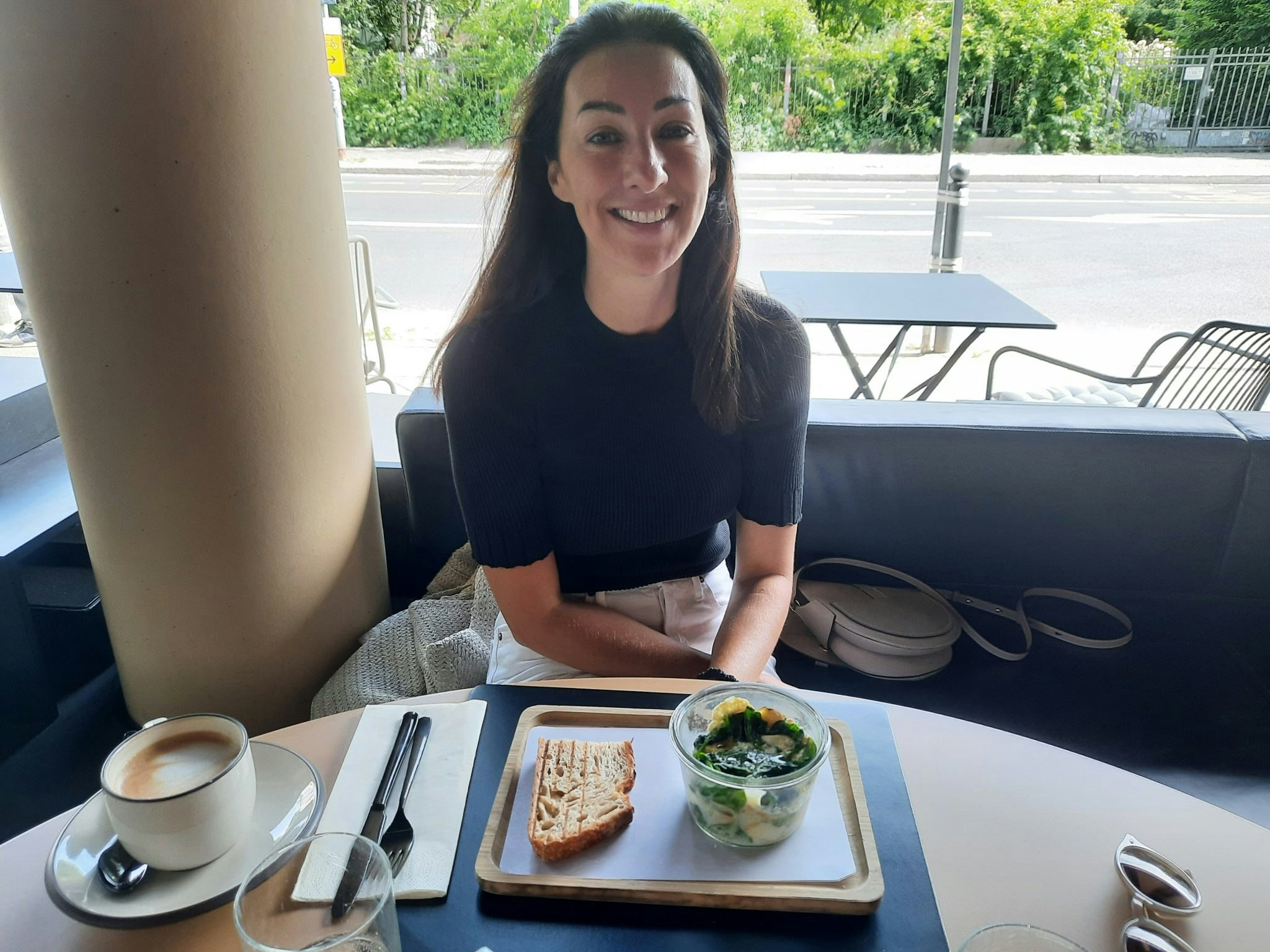
While work can sometimes be all-consuming for Huber, life in Majorca — relaxed, serene — is something to be treasured. Huber can do most of her work online and spends her evenings swimming in the turquoise ocean with her daughter and her weekends hiking into the mountains.
She maintains a connection to Berlin though, travelling to the city at least once or twice a month — especially as some of the most interesting companies in foodtech are there.
“You know, Germany was known for decades for its ‘made in Germany’ trademark; its engineering power. Then, we missed out on the whole internet era when Silicon Valley was 20 years ahead of us.
“But now, there’s a whole new challenge of engineering needed in food production and agriculture. Molecular biologists are doing amazing things with precision fermentation, cultivated meats and so on.”
For example, she met with a Berlin-based company called BettaFish recently, which makes plant-based tuna from seaweed. She tried out a tuna sarnie or two, which the founders had packed for her in a Ziploc bag, and was surprised at how good they were.
“The texture and everything — it tasted just like real tuna,” says Huber, her eyes widening. “It’s my job now to spend time looking at this stuff. How cool is that?”
A few extra tidbits from Huber:
On being a woman in tech — then and now
"Yesterday when we had our female ladies dinner of 35 women, I realised how alone I was as a woman at Delivery Hero. I remember there were conference organisers who had to pay women to come to the drinks party after the conference because they needed a good mix of genders. I was thinking, why only invite them for the afterparty?"
On the importance of food
"Food can really impact the way people share information with each other; it’s such a social thing to do together. You exchange, you give feedback, you take the time to talk. That’s why I think food is so much more than just putting something into your body."
On her favourite stage of company building
"I like the early stages of a company. I love getting my hands dirty and understanding: What processes do we have here? How can we optimise this thing? Working with the team and getting stuff done is more my thing, so I think that is probably why I could not be a CEO of a publicly listed company."
More from Brunch with Sifted:
👉 Northzone's PJ Pärson: “I was a bit of a wild card back then!"
👉 Sextech founder Cindy Gallop: "I want to change the world through sex and make a huge amount of money doing it"
👉 Sorare founder Nicolas Julia: "I’m not sure you’ll find something crazy about me”
👉 London VC Sonali de Rycker: “Every night when I go to sleep, I think of everything I could be doing more of“
Correction: A previous version of this article stated that Rocket Internet founded Delivery Hero, when in fact they just invested in the company years after its launch.
